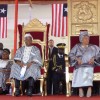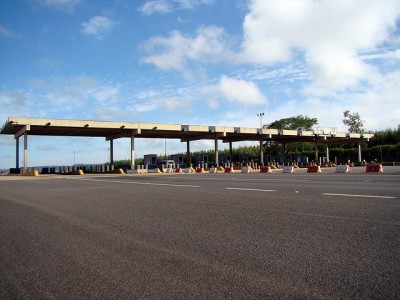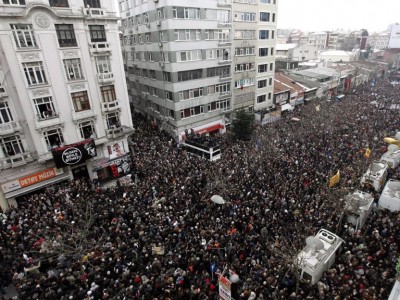Stories from 20 January 2012
Cuba: Collapse of a Building in Havana
Miriam Celaya writes about the collapse of a building [es] in the center of Havana in which four teenagers died.
Cuba: On the Death of Wilmar Vilar Mendoza
Regina Coyula reflects on the death of the jailed dissident Wilmar Vilar Mendoza [es], who died following a 56 day hunger strike. Orlando Luis Pardo Lazo also blogged [es] about Vilar Mendoza's death.
Cuba: TV and “Women's” Programs
Blogger and activist NegraCubana offers a reflection and a critique of the TV program [es] Ecos de Mujer (Echoes of Women) being transmitted on the state-run channel Cubavisión.
Cuba: “Free Isn't Easy”
Blogger and Global Voices author Ellery Biddle reflects on freedom of speech in thinking about the recent struggle against the United States proposed anti-piracy bill Stop Online Piracy (SOPA) and Cuba: “As I juxtapose SOPA and Cuba’s limitations on free speech, it may sound like I’m comparing apples and mangoes—on...
Cuba: Bloggers React to Death of Hunger Striker
It has been a sad day for the Cuban blogosphere, as netizens received news of the death of political prisoner Wilman Villar Mendoza, who has been on a hunger strike since last November.
Puerto Rico: The 365 Project
The online edition of the magazine Cruce has published some of the photographs the photojournalist José Rodrigo Madera [es] shot as part of his 365 project: a photo for every day of the year 2011. (All of the photos were originally posted on his Facebook account)
Puerto Rico: The Latest in High School Sports
The website Activao [es] offers the most complete and best news and pictures on high school sports in Puerto Rico.
Cuba: Imprisoned dissident dies after 50 day Hunger Strike
Political dissident Wilmar Villar Mendoza died after a 50 day hunger strike. He was serving a four year sentence for disobedience; he was arrested while leading a peaceful demonstration. The Latin Americanist includes a video of Villar Mendoza protesting last November.
Russia: Security Services Put Pressure on Parents of the Protest Group Moderator
Ilya Klishin, creator of the Facebook groups that organized Russians to participate in Bolotnaya [ru] and Sakharov protest demonstrations, wrote [ru] that his mother had received a call from FSB (Federal Security Services) and his father was summoned to the local police department. Later he added [ru] that he might...
Puerto Rico: Levels of Crime?
In response to an editorial suggesting that the citizenry “may have been complicit in the senseless murder of Karla Negrón, the latest victim of a stray bullet on New Year's Eve”, Dondequiera says: “It is pure hypocrisy for anyone to accuse Karla's murderer of breaking by the law by anyone...
Puerto Rico: Economic Reality
Gil the Jenius shares “a bitter pill of economic information”, asking: “How screwed are We? On a scale of 1 to 10, about a 9.5.”
Guyana: First Female Colonel
Repeating Islands notes that “in a history making moment, the promotion of Guyana’s first female Colonel was today announced. She is the region’s first serving female colonel.”
Zambia: Blogger Challenges Ex-ruling Party's Query On Guy Scott's Appointment
The former ruling party, the MMD, has questioned the legality of the appointment of independent Zambia’s first white Vice President, Dr Guy Scott, threatening to take the matter to the court of law to determine its constitutionality. But one Zambian blogger argues that Dr Scott qualifies hold the office of Vice President and even to stand for the office of president.
Liberia: Was the Presidential Oath of Office Taken Improperly?
Liberia’s President Ellen Johnson Sirleaf took the oath of office on January 16, 2012 in Monrovia. One Liberian blogger argues that Ellen Johnson-Sirleaf is not Liberia's President because she did not raise her right hand and kiss the Bible while taking the oath as the procedure requires.
China and Hong Kong: Train Scuffle Ignites Cross-Border Fury
A passenger scuffle over mainland Chinese tourists eating food on a train in Hong Kong, is the latest of a series of cross-border controversies between China and Hong Kong, amidst mounting resent over Beijing's influence in Hong Kong.
Brazil: Toll Roads, Constitutional or Too Much?
After the approval of the Urban Mobility Law in the beginning of 2012, a discussion surrounding toll roads in all national territory came back into play. According to the law, cities will be able to charge an “urban toll” with the intention of diminishing automobile traffic and improve circulation around the cities. However, the implementation of yet another toll makes internal mobility impracticable for a portion of the population, given that several important federal and state highways have already been privatized.
Russia: Echo of Moscow Under Fire
Streetwise Professor discusses Putin's recent critique against the Russian independent radio station Echo of Moscow.
Turkey: Post-Murder Trial, Thousands Remember Hrant Dink
Thousands have marched in Turkey to commemorate the fifth anniversary of the murder of Turkish-Armenian journalist and Agos newspaper editor Hrant Dink.
Russia-US: Reviewing the Jackson-Vanik Act
Edward Lozansky at Russia Blog argues that the US Jackson-Vanik Act – denying Russia Most Favoured Nation trade status – should be aborted in view of Russian accession to the World Trade Organization.
Russia: Mafia State Review
Kelly Hignett of The View East reviews Luke Harding's Russia-critical book Mafia State on his dire experiences as a foreign correspondent in Russia.
Ukraine: Tormenting Trial
LEvko of Foreign Notes criticizes the ongoing trial against former Ukrainian Interior Minister, Yuri Lutsenko, as procedures display an abnormal amount of legal irregularities.







